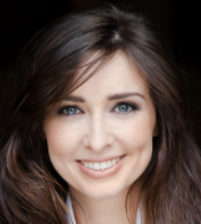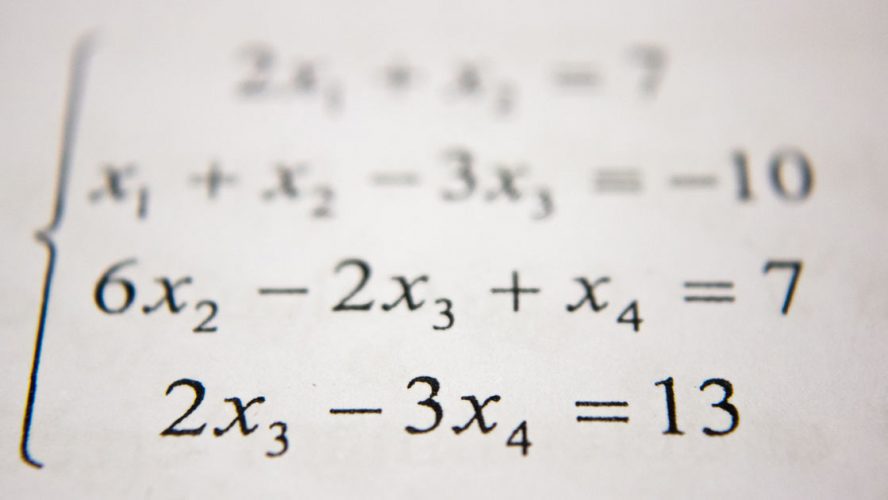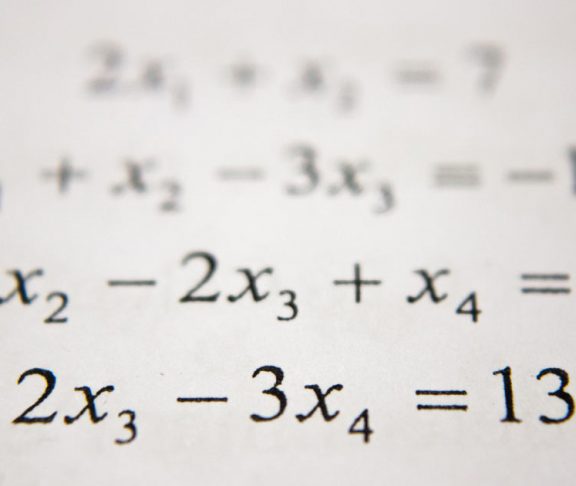
Dr Aoibhinn Ní Shúilleabháin
Lecturer and Assistant Professor in Mathematics Education and former ‘Rose of Tralee’
We need to start thinking differently about maths education. Here, Dr Aoibhinn Ní Shúilleabháin, speaks about the misconceptions and unlimited career opportunities in mathematics.
From algebra to trigonometry and calculus to geometry. Maths isn’t always thought of by many as the most exhilarating of subjects. However, Ní Shúilleabháin begs to differ.
“While I enjoyed maths and loved studying it in school, I never thought I was a whiz at it. When I didn’t get the answers, it could be frustrating. But I began to believe in my own ability. This started by studying with a group of other students before the Leaving Cert.
“I realised that there’s more than one way to go about answering a maths question. In fact, the fun is actually in trying to find different ways of explaining the same thing. It’s a great sense of satisfaction when you arrive at an answer.”
Maths is needed to solve many of society’s issues.
In a way, figuring out a problem in maths is like trying to figure out any problem in life. There isn’t always going to be one quick and easy answer. But what many people might not realise, is that the two go hand-in-hand. Maths is needed to solve many of society’s issues.
“It’s not always indicative that maths is applicable to the real world,” says Ní Shúilleabháin. “I think it’s difficult for young people to envision what they can do with a maths degree. Consequently, we should let them know that it’s not just about sitting in a room with a whiteboard all day.”
Applying yourself
Ní Shúilleabháin has a degree in theoretical physics. She now teaches maths and mathematics education to undergraduate students. She goes on to say that maths equips people with many skills which can impact the world.
“There’s a real appetite for graduates who are competent and confident in maths. Those who have well-versed mathematical problem-solving skills and enjoy analysing data, building models of systems. From those who can put forward predictions of what might happen in the future.”
There’s also a growing need for new quantitative skills and reasoning in a wide variety of careers. In fact, definitely not just STEM careers! Jobs within industries in Ireland which are experiencing the most growth at present. These jobs include: accountancy, financing, IT, construction and pharma, and areas such as sport, sales and agriculture.
Workers across such industries need to know how to effectively deal with data, discover trends and patterns in huge amounts of information (‘big data’), use computers to solve problems (super and exascale computers) and make predictions about the relationships between components of a system (mathematical modeling).
Systems analytics and modelling are needed where NGOs need to provide food and supplies for areas in crisis or emergencies.
“Then, of course, mathematical skills are needed in medicine. Sadly, many people may think it’s all based on biology and chemistry. You need someone to model a particular drug’s effect in the body before it is even manufactured for trial.”
Analytical skills are needed in many sales-related careers. Project managers need to analyse a product and the market for trends and variables which may improve their product. In digital companies, such as Facebook, data is being constantly analysed to understand their users.

Facing the challenges
It’s clear there is a huge demand for mathematical skills in a variety of diverse careers. However figures based on last year’s Leaving Cert have shown that fewer girls are opting to study maths at honours level. In fact, this pattern follows through to third level education.
“There’s currently a gender imbalance in those who are choosing maths-based subjects after secondary school” says Ní Shúilleabháin.
Ní Shúilleabháin says we need to start by debunking some of the myths. “Potentially, at some point in their education, young women may not feel confident in their mathematical ability. This then means choosing not to continue to study that subject. There seems to be a myth that maths skills are something you’re born with. Either you’re good at it or you’re not. Research shows that young learners dismiss maths if they don’t think they’re going to be successful in the subject. This is particularly prevalent in girls
“Maths isn’t about being the quickest to answer a question. Speed does not necessarily indicate an understanding of a concept. Mathematicians can spend weeks, months or even years on a problem and often also work collaboratively on problems. Solving an unfamiliar problem can take time, but we can all improve our mathematical skills by practicing.
Following a subject you enjoy
Mathematicians can spend weeks, months or even years on a problem and often also work collaboratively on problems.
“Research also shows that some learners will disengage from a subject if they don’t understand why they’re doing it. It’s important that we emphasise the process behind why we’re doing something, rather than just looking for a correct answer. For me, it’s important to highlight that mathematics is not only an abstract endeavor. But that it underpins research in very many different areas that benefit society
Ní Shúilleabháin, winner of ‘Rose of Tralee’ in 2005, is a firm believer in pursuing courses in something you enjoy.
“People were surprised that I was studying a maths and physics degree during the ‘Rose of Tralee’. It wasn’t a big deal to me – there were two other girls in my class. But I guess it was unusual to have a woman talking about her degree in theoretical physics. Well it certainly was 12 years ago!
“I chose to do that degree, not because I knew what kind of job I wanted after university, but because I was fascinated by physics. I wanted to learn more about how mathematics could describe what was happening in the world around us.”

Male and female role models are important
According to Ní Shúilleabháin, having more role models, both male and female, is essential. It helps demonstrate the exciting opportunities that are our there for our young people. She continues, “we should continue to highlight students doing undergraduate programmes in STEM – there are some excellent 18 and 19-year-olds who are currently studying in these courses and are really enjoying them
Maths is a universal language, which means there’s also the opportunity to travel.
“Even though there might not be a gender balance in a particular course, I would hope this wouldn’t put students off choosing a particular degree pathway. Now, more than ever, we need young women studying mathematics, engineering and computer science. Having a diverse group of people work on any particular problem leads to the consideration of more perspectives on solutions – from climate change to cyber security.”
Not only does maths have the advantage of opening up doors to many different careers, but maths is a universal language, which means there’s also the opportunity to travel.
“Maths is a language that everyone speaks, no matter what country you’re in,” says Ní Shúilleabháin. “There’s such a beautiful, rich history of maths – people have been working for centuries to build a collective way of describing the universe – from the tiniest particle to super-massive black holes. It’s a human endeavour and it’s certainly an international language. Having a maths-based degree means you can travel and work all over the world.”

